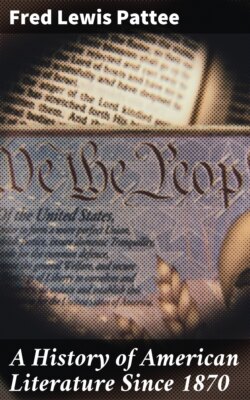Читать книгу A History of American Literature Since 1870 - Fred Lewis Pattee - Страница 20
На сайте Литреса книга снята с продажи.
VIII
ОглавлениеTable of Contents
The great tide of comic writings became fast and furious in the seventies. In 1872 no fewer than nine comic papers were established in New York alone: The Brickbat, The Cartoon, Frank Leslie's Budget of Fun, The Jolly Joker, Nick-nax, Merryman's Monthly, The Moon, The Phunny Fellow, The Thistle, and perhaps others. Some died after the first issue, some persisted longer. Every year saw its own crop of comics rise, flourish and die. In 1877 Puck was established, the first really successful comic paper in America; in 1881 appeared Judge; and in 1883 Life, the first to succeed without politics.
Very little of all this humorous product can be called literature; the greater part of it already has passed into oblivion; yet for all that the movement that produced it cannot be neglected by one who would study the period. The outburst of humor in the sixties and the seventies was indeed significant. Poor though the product may have been, it was American in background and spirit, and it was drawn from no models save life itself. For the first time America had a national literature in the broad sense of the word, original and colored by its own soil. The work of every one in the school was grounded in sincerity. The worker saw with his own eyes and he looked only for truth. He attacked sentimentality and gush and all that was affected and insincere. Born of the great moral awakening of the war, the humor had in it the Cervantes spirit. Nast, for instance, in his later years declared, "I have never allowed myself to attack anything I did not believe in my soul to be wrong and deserving of the worst fate that could befall it." The words are significant. The laughter of the period was not the mere crackling of thorns under a pot, not a mere fusillade of quips and puns; there was depth in it and purpose. It swept away weakness and wrongs. It purged America and brought sanity and health of soul. From the work of the humorists followed the second accomplishment of the period: those careful studies in prose and verse of real life in the various sections of America.
